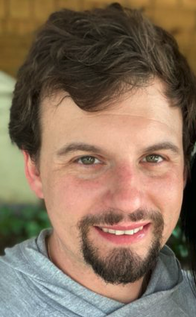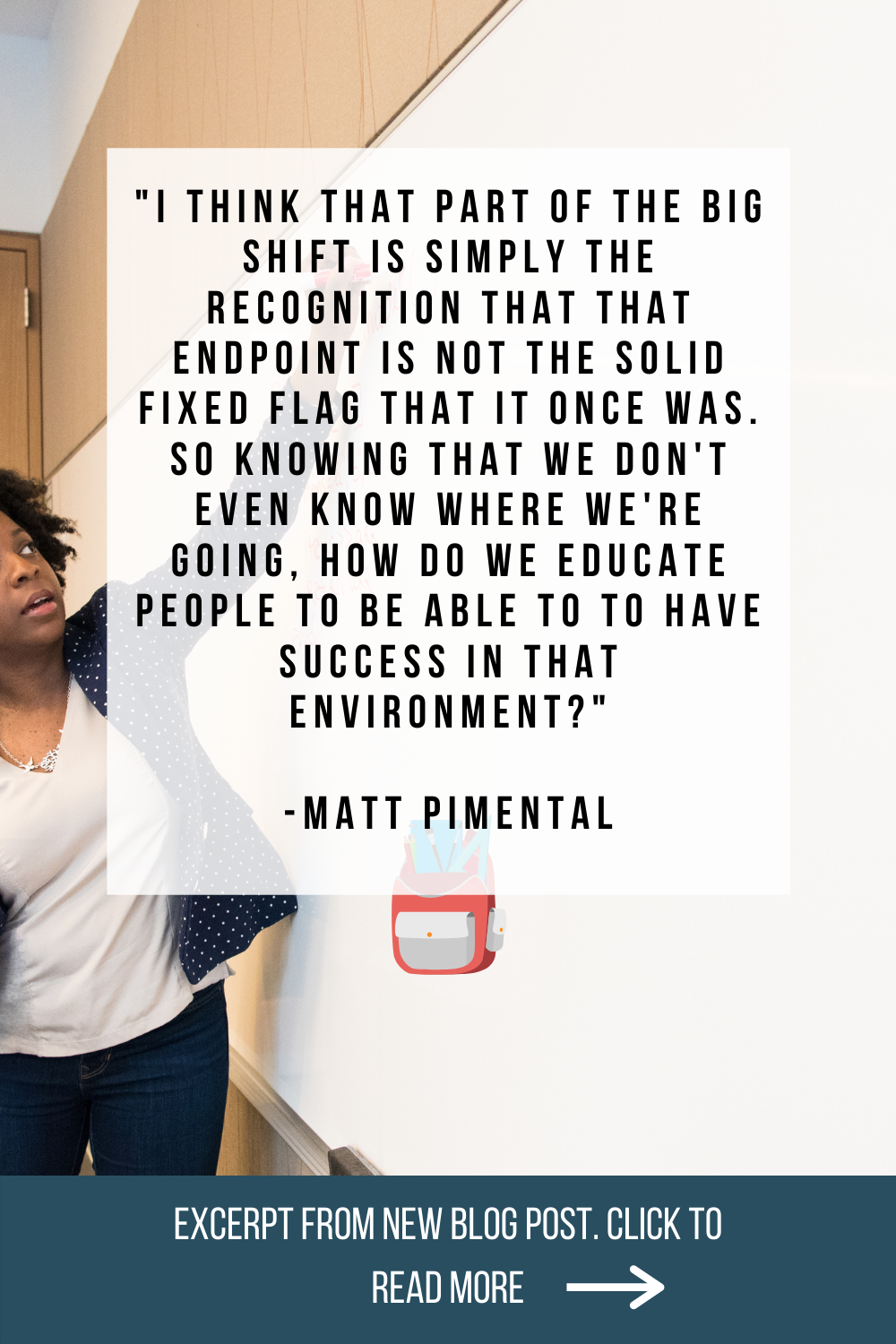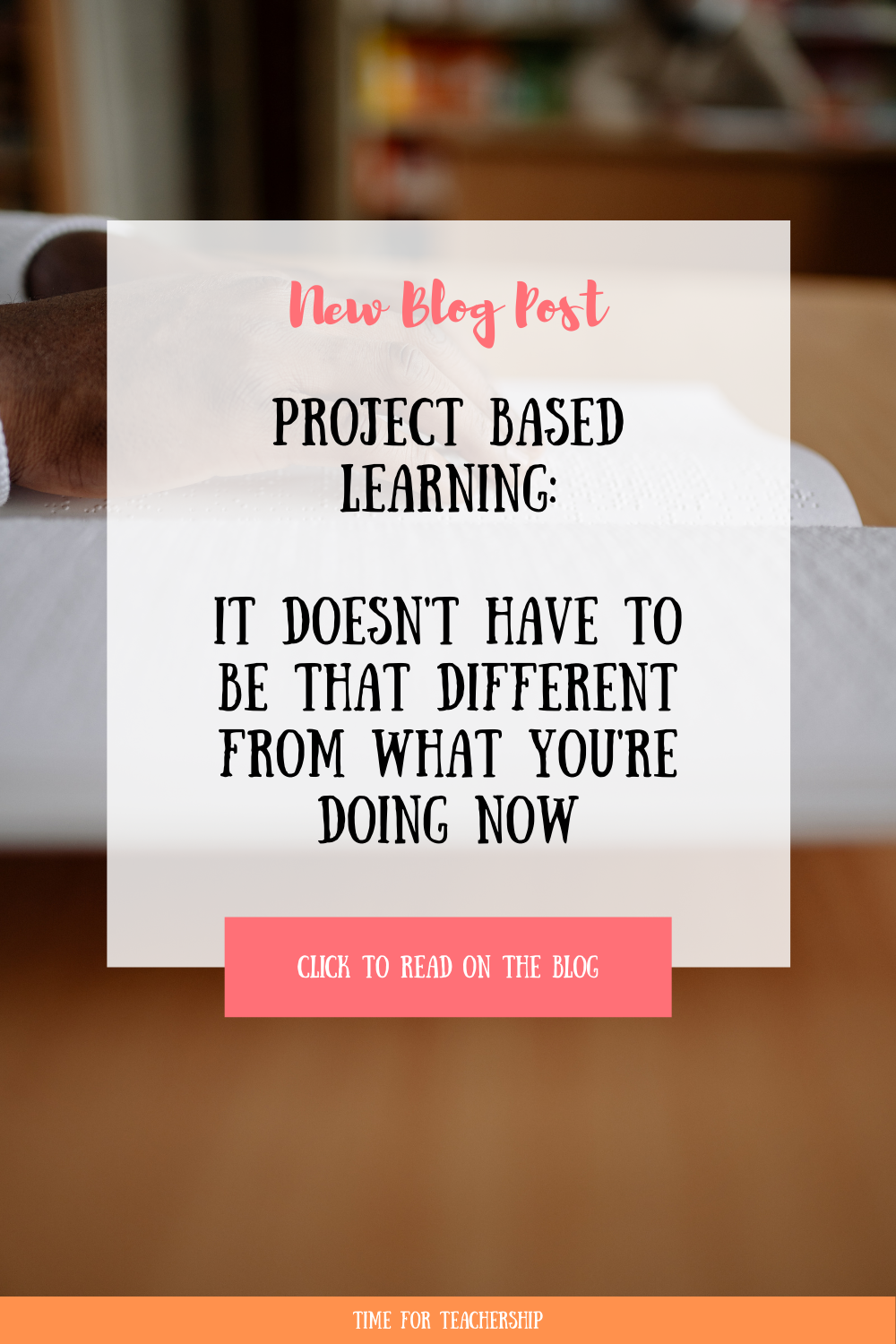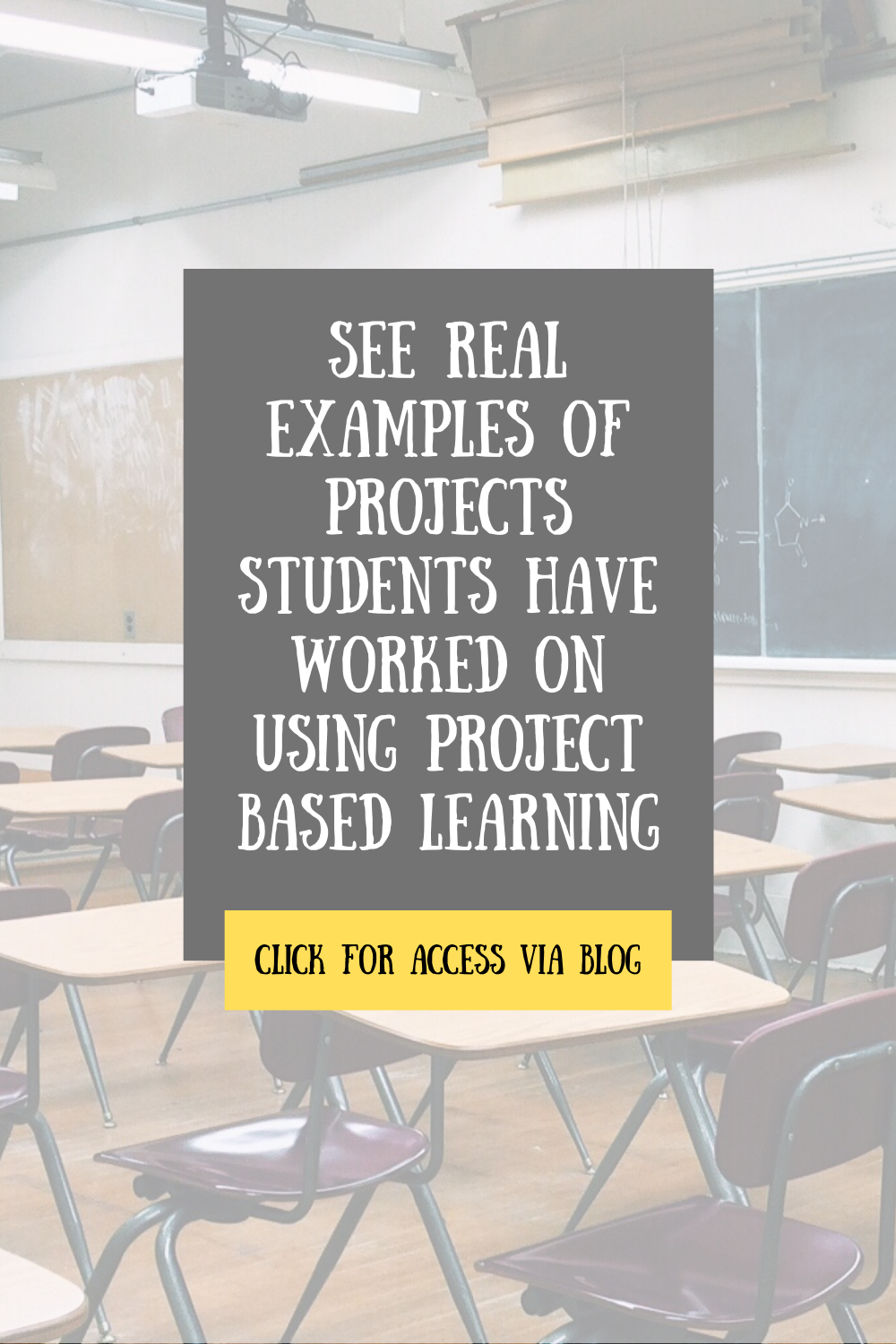
Listen to the episode using the above player or by clicking the link to your preferred podcast platform below: Matthew Pimental has 15 years of experience in education. He got started with developing cultural immersion experiences for American teenagers to locations throughout the world before transitioning to a classroom position in a Philadelphia charter school serving students from the third (economically) poorest zip code in the United States. He transitioned to a role supporting students identified as “intellectually gifted” and now oversees professional development programming for teachers. He also supports a school within a school project-based learning program in a highly diverse school district in a metropolitan area. Can you remember the first time you heard about Project Based Learning? Perhaps it was from this blog, during a PD workshop, or maybe you saw your coworker teach a PBL unit. Did you think to yourself, “wow that sounds like a lot of work,”? You’re not the only one. Our guest, Matthew Pimental, says it’s common to hear teachers assume that being unconventional in the classroom means throwing away everything you know and having to start all over again. That’s what deters schools from getting into project based learning. In this episode, Matthew breaks down some of these fears and talks about why it’s really not as big of a leap as you might think. All schools should be able to make changes that will help the students The methods and ways in which people are taught do not have to be through a textbook. Many schools get a kind of tunnel vision when going the typical route. Teachers try to get through the fast paced flow of the week without remembering that there is more to education than this one way. Matthew remembers feeling like a cog in a machine as a student in middle school classes with traditional models. There was no personalized learning. Private schools seem to have more resources and capacity for unique learning experiences. But fun, enriching education experiences shouldn’t be a luxury for private schooling. Public schools deserve the same outcomes. That’s why project based learning is on the rise. The benefits are stirring conversations. Is PBL less rigorous? Some parents and principals worry that changing the pedagogy and evaluations for students means losing out on organization and quality. Here’s the secret: there’s only a risk for disorder and low quality if you allow it. Proper planning and following research based strategies is all it takes to make sure any changes are smooth. For example, shifting the grading system to align with a PBL approach does not mean throwing out all forms of assessment and feedback. “If you're not going to grade students, how are you holding students to excellent work? Right, you can't avoid that just because you're not going to use grades, and I think oftentimes...getting away from grading winds up being getting away from any kind of evaluation whatsoever, and that's not high quality education.” PBL can still meet the basic standards within your state. It’s not as radical as one may think according to Matthew. PBL curriculum still enables students to learn the most important course concepts and skills. Not to mention, he recommends that you keep using practices from the traditional model too because many of those still have value. Find what works for your students and keep it! Then, look at what’s left to change. Use project based learning as the main course (not the dessert at the end). The project should drive the learning. For teachers who don’t feel like they want to incorporate PBL into every unit, Matthew says some of his teachers choose specific units to use a PBL approach and other units are designed using a more traditional model. What do you think your students could accomplish with more project based learning? If you've already started, what successes have you had? If you're not sure about starting, what’s holding you back? Share your thoughts in the comments section below! For more, check out my Curriculum Boot Camp course or the “Just the Protocols” module now so you can create your own project-based units grounded in justice in no time at all! Until next time leaders, continue to think big, act brave, and be your best self. More Links! During the show, Matthew refers to a student-created book as the culminating "public product" of a ninth grade PBL unit. Here are links to two of those books (2018) and (2020). He also mentioned his teachers are participating in High Tech High's Unboxed Podcast. Matthews’s email and more information on his district can be found on Cheltenham’s Website.
0 Comments
Leave a Reply. |
Details
For transcripts of episodes (and the option to search for terms in transcripts), click here!
Time for Teachership is now a proud member of the...AuthorLindsay Lyons (she/her) is an educational justice coach who works with teachers and school leaders to inspire educational innovation for racial and gender justice, design curricula grounded in student voice, and build capacity for shared leadership. Lindsay taught in NYC public schools, holds a PhD in Leadership and Change, and is the founder of the educational blog and podcast, Time for Teachership. Archives
May 2024
Categories |




 RSS Feed
RSS Feed